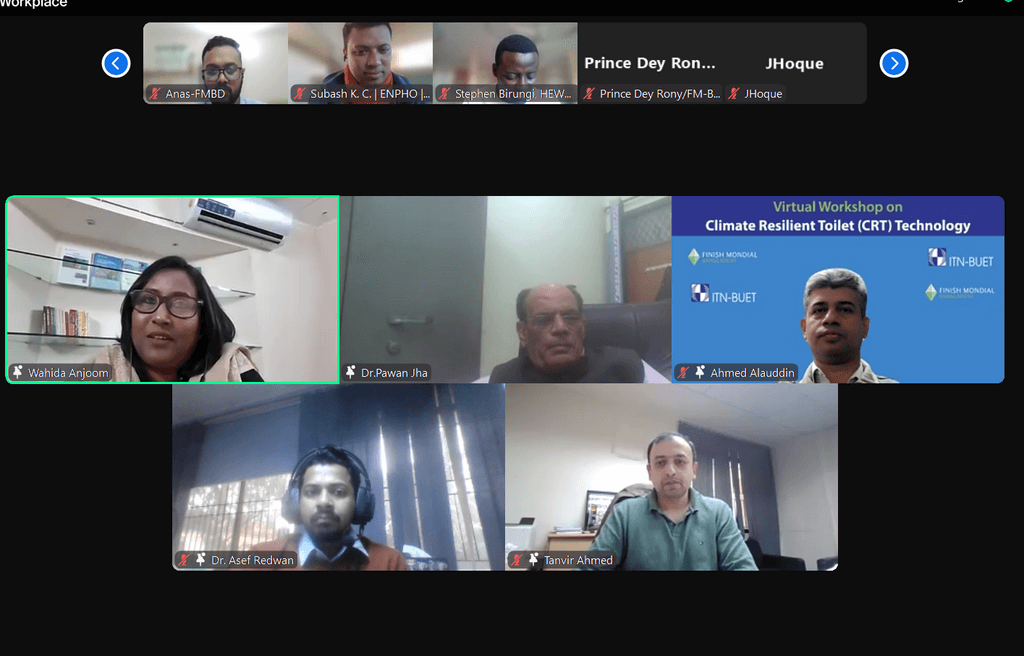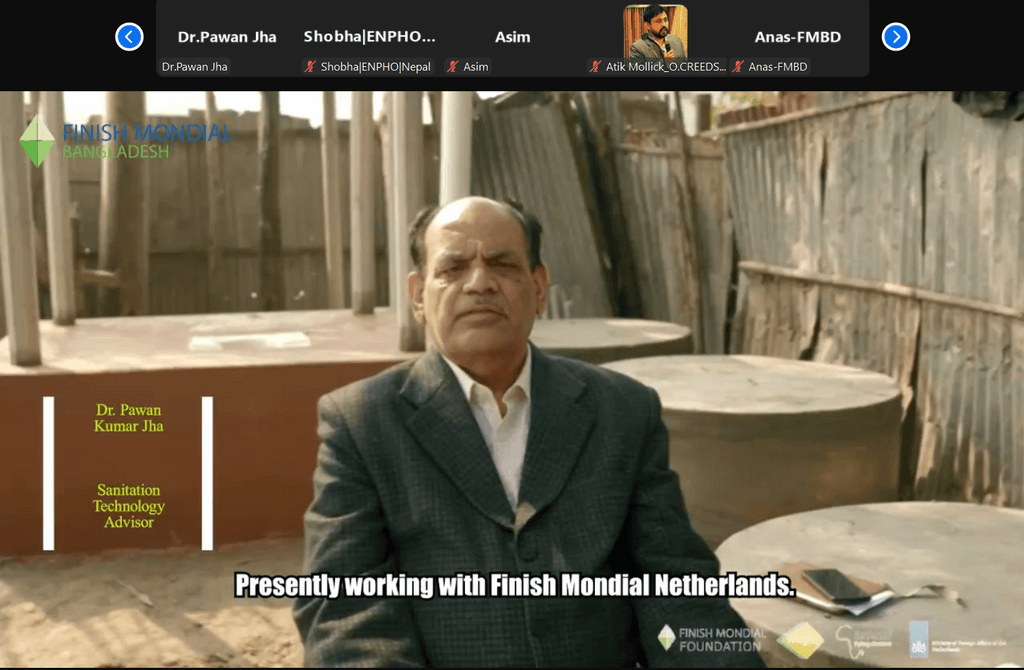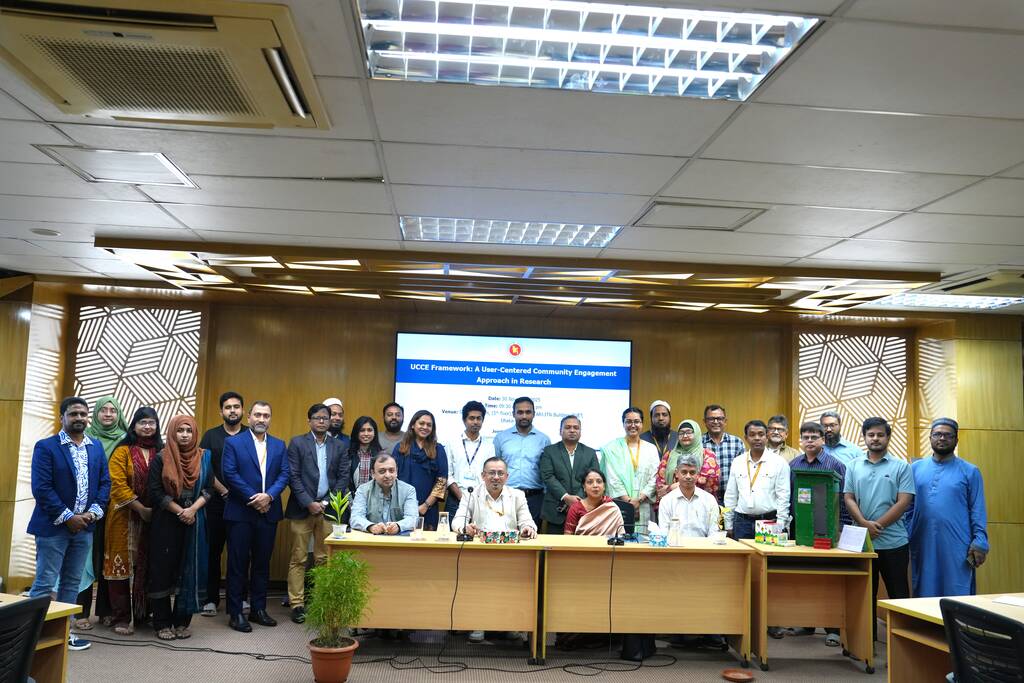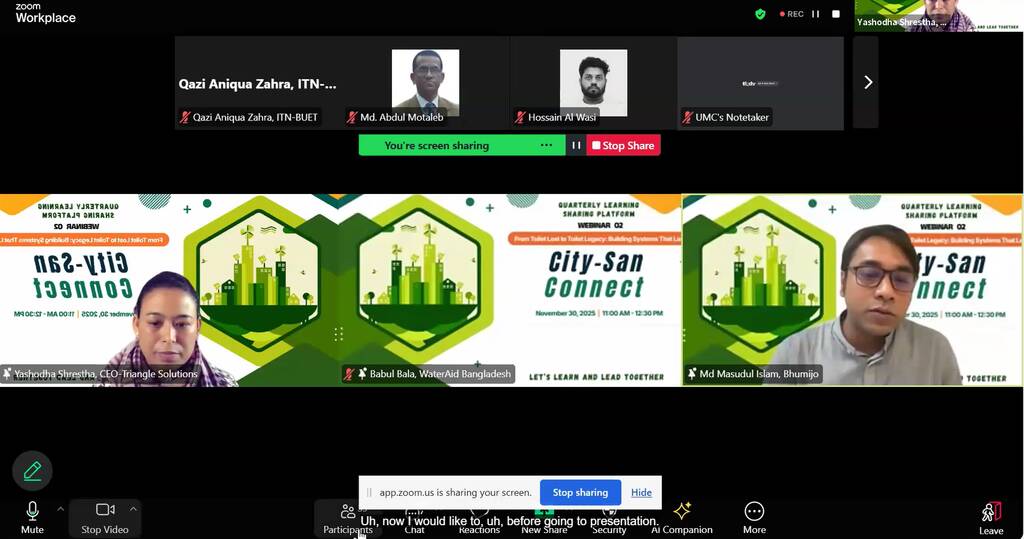A virtual workshop on Climate-Resilient Toilet (CRT) Technology, jointly organized by ITN-BUET and Finish Mondial Bangladesh on December 11, 2024, brought together 107 participants, including experts, policymakers, students, and representatives from various sectors. The event provided a platform to explore sustainable sanitation solutions for flood-prone and high-water-table regions in Bangladesh.
Ms. Wahida Anjum welcomed everyone to the technical session. Afterward, Mr. Alauddin Ahmed, Project Manager at ITN-BUET, stressed the importance of climate-resilient technologies, noting, “Flooding is common in Bangladesh, with massive floods affecting up to 70% of the land every decade. Prioritizing resilient sanitation is essential during such times.”
The event spotlighted the Green Toilet, an innovative sanitation system developed by Dr. Pawan Kumar Jha, a winner of the hackathon arranged by FINISH Mondial. This advanced three-chamber system prevents groundwater pollution and effectively treats wastewater, achieving a 99.7% reduction in total suspended solids (TSS) and a 97.8% reduction in coliform, ensuring environmental safety and usability.



The technology was demonstrated in Gaibandha Municipality, Bangladesh, where two units were constructed using locally sourced materials to ensure cost-effectiveness and scalability. These systems, supported by Finish Mondial, performed exceptionally, reducing health risks and groundwater contamination while adapting to waterlogged conditions.
Participants inquired about affordability, disability accessibility, and flood resilience. The researcher highlighted the utilization of used cement bags in the system which resulted in an overall construction cost of around 35,000 BDT per unit. The system’s longevity was also highlighted, requiring cleaning only every 10 years, with sludge repurposed as fertilizer.
In closing, Dr. Tanvir Ahmed, Director of ITN-BUET, reflected on the initiative’s impact, stating, “True climate resilience lies in both adaptation and mitigation—a balance that sustainable sanitation technologies must strive to achieve.”
The workshop concluded with commitments to expand pilot projects, train local practitioners, and further research on methane gas utilization, marking a significant step toward enhancing sanitation resilience amid climate challenges.





